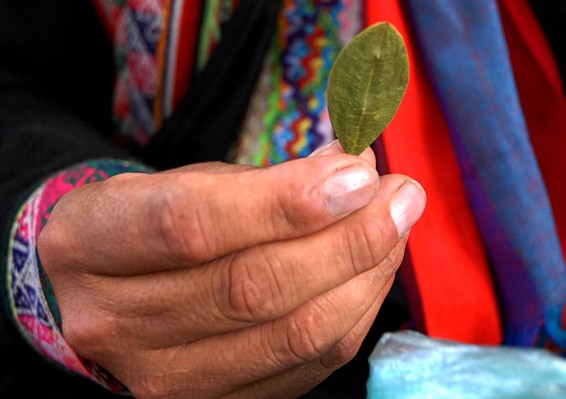The coronavirus crisis has interrupted transnational drug supply—but that might not last long, the UN Office of Drug and Crime (UNODC) predicts. In the face of contracting economies and inadequate government responses, people in Latin American may increasingly respond to precarious economic and political conditions by joining illicit cultivation operations.
As borders begin to reopen, illicit farming of coca leaf and opium may be “an opportunity to recover (which other crops cannot easily offer)” for vulnerable Latin Americans facing the “worst economic crisis in [the region’s] history,” since the Great Depression, states UNODC in a May 7 rapid-assessment research brief.
Scrambling to make ends meet in countries that supply much of the world’s heroin and cocaine, illicit crop cultivation may be one of the few available economic opportunities, as UNODC details. Mexico is the third largest producer of opium in the world, and its economy is expected to shrink by 6.5 percent as a result of the crisis. Jobs in Mexico, Colombia, Bolivia and Peru could ultimately be slashed by up to 14 percent. More broadly, the proportion of Latin Americans living in poverty is expected to spike by two percentage points.
Drug suppliers seem to be filling the void left by unresponsive governments. “During the ongoing COVID-19 pandemic, [Mexican] cartels are reported to be giving away supplies across their territories of influence and using “social activism” to earn the goodwill of the local population,” the UNODC authors write. “Increasing unemployment, decreasing income and higher prices of illicit crops cultivated (e.g., cocaine and heroin) are expected to make membership of a drug cartel increasingly attractive.”
Elsewhere in Latin America, gangs have reportedly been providing direct relief for their communities. As Filter recently reported, people living in Brazil’s favelas are being supported by drug gangs distributing groceries, medications and money.
In Bolivia, controls on coca leaf cultivation may be relaxed as a result of the pandemic. As a result of the US-backed coup of former Bolivia President Evo Morales, the country’s first Indigenous leader, in December 2019, as well as the 2020 coronavirus outbreak, farmers may increasingly diverge from socially-enforced limits on coca cultivation, the UNODC’s Bolivia field office told the report authors.
Before the UNODC’s longer-term predictions have a chance to unfold, Latin American drug producers are still grappling with the pandemic’s economic strains. Colombia and Peru are both reportedly seeing immediate obstacles, like inaccessibility of gasoline, a key resource for cocaine production, and drops in prices, respectively. Similarly, Mexican meth producers seem shocked by the halt in chemical imports from East Asia.
Outside of Latin America, the labor supply for poppy cultivation in South and Central Asian is disrupted by the border closure between Afghanistan and Pakistan. The pandemic’s interference in Mexico’s production of opium is limited because work is spread throughout the year, while Afghanistan’s season is slimmer, from March to June—which this year has been smack in the middle of the pandemic.
Disparate regional outcomes faced by drug producers are also seen within Latin America. Colombia has ramped up law enforcement, which seems to be interfering with operations, whereas in Peru, the cocaine supply-side may benefit from the lockdown: The government halted crop eradication on March 15.
Despite current disruptions, they’re “likely to be short-lived,” the UNODC authors write. The press release for the research brief adds: “In the long-run, the economic downturn caused by the COVID-19 pandemic has the potential to lead to a lasting and profound transformation of the drug markets, which can be fully understood only after more research is done. The economic difficulties caused by COVID-19 may affect people who are already in position of socioeconomic disadvantage harder than others.”
Photo of a coca leaf by Marcello Casal Jr. via Wikimedia Commons/Creative Commons





Show Comments